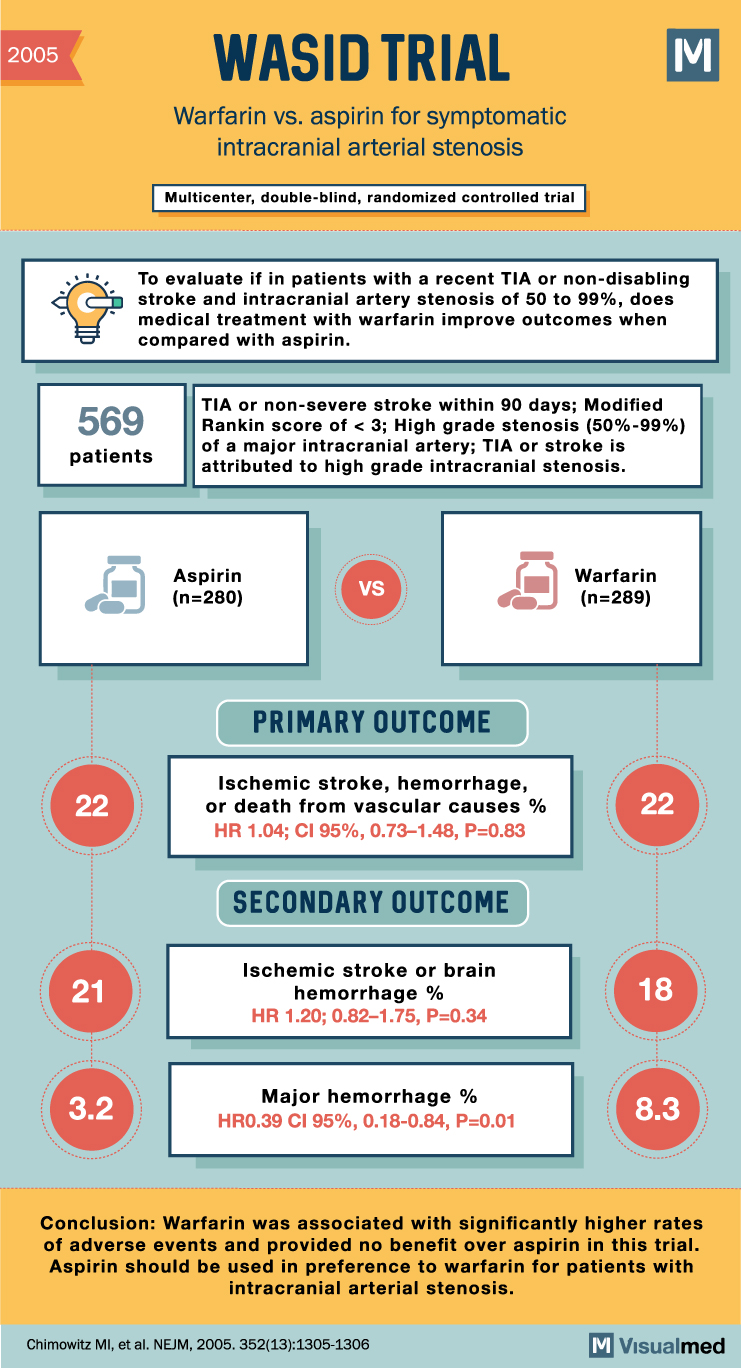
WASID Trial Summary
The WASID trial sought to compare the effectiveness of warfarin and aspirin in the treatment of atherosclerotic intracranial arterial stenosis, a significant cause of stroke. While warfarin is often preferred over aspirin for this condition, the two therapies had not been previously compared in a randomized trial.
In this double-blind, multicenter clinical trial, patients with transient ischemic attack or stroke caused by angiographically verified 50 to 99 percent stenosis of a major intracranial artery were randomly assigned to receive either warfarin (target international normalized ratio, 2.0 to 3.0) or aspirin (1300 mg per day). The primary endpoint was a composite of ischemic stroke, brain hemorrhage, or death from vascular causes other than stroke.
After 569 patients were randomized, enrollment was stopped due to concerns about patient safety in the warfarin group. Over a mean follow-up period of 1.8 years, adverse events were observed in both groups. The aspirin group had a lower rate of death (4.3 percent) compared to the warfarin group (9.7 percent), with a hazard ratio of 0.46 (95 percent confidence interval, 0.23 to 0.90; P=0.02). Major hemorrhage occurred in 3.2 percent of the aspirin group and 8.3 percent of the warfarin group, with a hazard ratio of 0.39 (95 percent confidence interval, 0.18 to 0.84; P=0.01). The rates of myocardial infarction or sudden death were 2.9 percent in the aspirin group and 7.3 percent in the warfarin group, with a hazard ratio of 0.40 (95 percent confidence interval, 0.18 to 0.91; P=0.02). The rate of death from vascular causes was 3.2 percent in the aspirin group and 5.9 percent in the warfarin group (P=0.16), while the rate of death from nonvascular causes was 1.1 percent and 3.8 percent, respectively (P=0.05). The primary endpoint occurred in 22.1 percent of the patients in the aspirin group and 21.8 percent in the warfarin group, with a hazard ratio of 1.04 (95 percent confidence interval, 0.73 to 1.48; P=0.83).
In conclusion, the WASID trial demonstrated that warfarin was associated with higher rates of adverse events and provided no additional benefit over aspirin for patients with intracranial arterial stenosis. Therefore, aspirin should be the preferred treatment option for these patients.